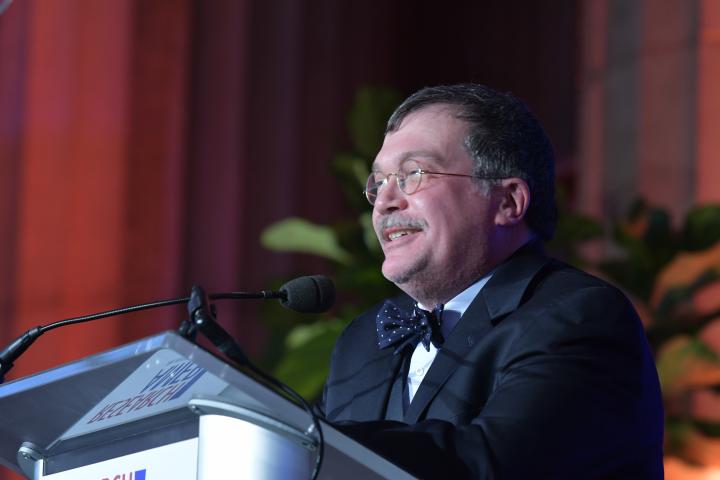Why physicians should engage the podcast generation

In an impressive two-hour interview with Joe Rogan, AMA member Peter Hotez, MD, PhD, displayed just how essential it is for physicians to be heard on podcasts. He also laid out the importance of addressing vaccines to the podcast generation during a time when the anti-vaccine movement is ravaging the country.
More than one million people have listened to the podcast, “The Joe Rogan Experience,” to hear Dr. Hotez dispel misinformation commonly spread about vaccines and autism. This allowed him to reach the 18 to 30-year-old groups in a way that other media interviews wouldn’t.
“I think it says a lot about the importance of podcasts and for this next generation. It definitely reached a number of people and a unique demographic. I think that was really a home run from that standpoint,” said Dr. Hotez, dean of the National School of Tropical Medicine and professor of Pediatrics and Molecular & Virology and Microbiology at Baylor College of Medicine.
He is also author of, “Vaccines Did Not Cause Rachel’s Autism” and co-head of the Section of Pediatric Tropical Medicine at Baylor College of Medicine.
We sat down with Dr. Hotez to learn more about why physicians should get involved. Here is what he had to say.
Is it worth it for physicians to take their professional expertise out of the exam room?
Dr. Hotez: “The anti-vaccine movement has become its own media empire unto itself that dominates the internet. It’s taken over Facebook. It’s taken over the Amazon site. That’s partly our fault as a scientific community and the medical community that we’ve been so invisible.”
“If you have the ability and interest in doing it, there’s a huge need because right now the American public is not getting their health information from scientists and physicians. They’re getting it from a lot of misinformation websites and it’s partly because the medical profession—the scientific professions—are invisible.”
“Research!America, which is a policy group, has done an interesting study to find 81 percent of Americans cannot name a living scientist and those that could, it’s people like Bill Nye the Science Guy and Neil deGrasse Tyson. It’s not working scientists that are writing grants and papers, revising papers and going to lab meetings. The American public has no idea what we do and that’s our fault.
“It’s our fault because we give the message to the medical students, residents and graduate students that public engagement is not important. We give the message that it’s a bad thing to interact with journalists directly or talk to the public directly—that’s seen as a form of self-promotion or grandstanding. We need to do the opposite.”




